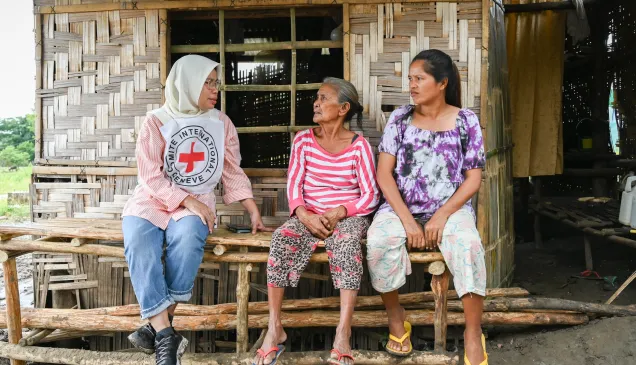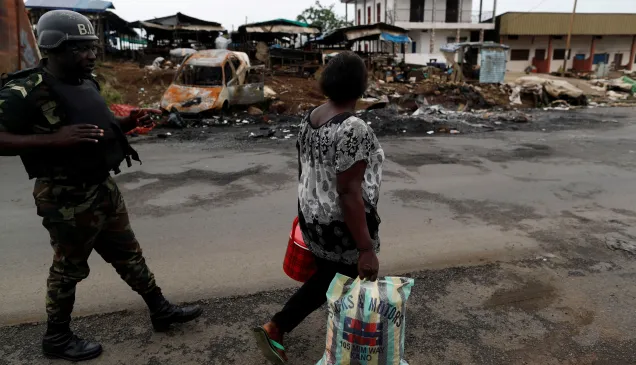Around 300 participants, including families of missing people from across Mindanao, local, provincial and regional officials, representatives from the Marawi Compensation Board and the Philippine National Police-Forensic Group, and religious groups graced the launch of The Book of Memories (Ang Aklat ng Mga Alaala), a 77-page publication released by the International Committee of the Red Cross (ICRC) in commemoration of the International Day of the Disappeared, which falls on 30 August.
Philippines: “The Book of Memories” book and exhibit launch
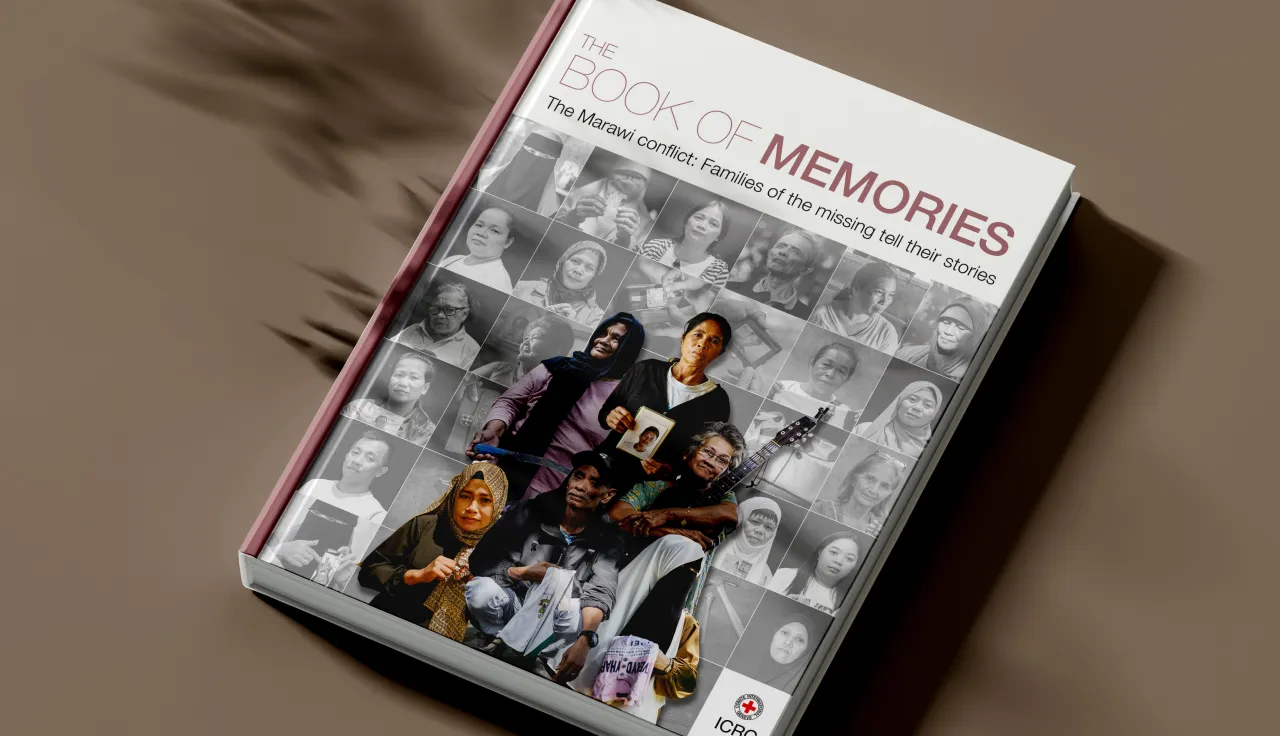
Manila (ICRC) – A coffee table book was launched and a photo exhibition was inaugurated today in Iligan City, Lanao del Norte, honouring the people who have been missing since the 2017 Marawi conflict, preserving their memories and amplifying the voices of the families that have been left behind.
A ribbon-cutting ceremony was held to inaugurate the photo exhibition which is open to the public from 26 to 30 August 2025 at the atrium of Robinsons Iligan. The exhibition features photographs from the book and explores the space between destruction and rebuilding in the aftermath of the Marawi conflict. Using skeletal house frames as visual metaphor, the exhibit reflects the fragility and resilience of a community that endures.
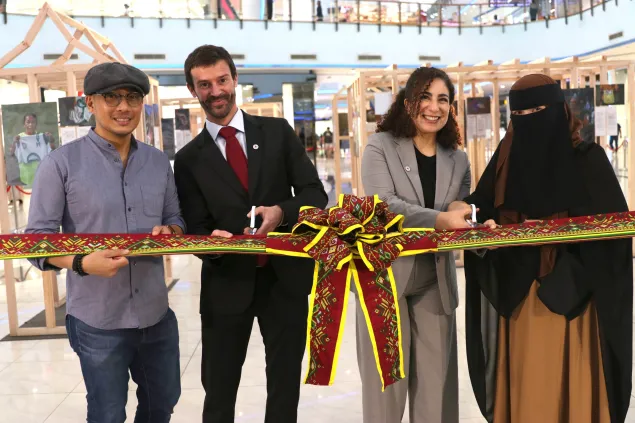
Ribbon cutting of The Book of Memories exhibit
From left to right: photojournalist Larry Monserate Piojo, ICRC Head of Operations Pierre-Yves Barrea, ICRC Cotabato head of subdelegation Rim Hajji, and Sophia Aminolla, sister of a missing person
In The Book of Memories, the families share their deeply personal stories, expressing their need for answers as they continue their search for their missing kin. Filipino photojournalist Larry Monserate Piojo captured photographs of the families along with the treasured objects that once belonged to their missing relatives.
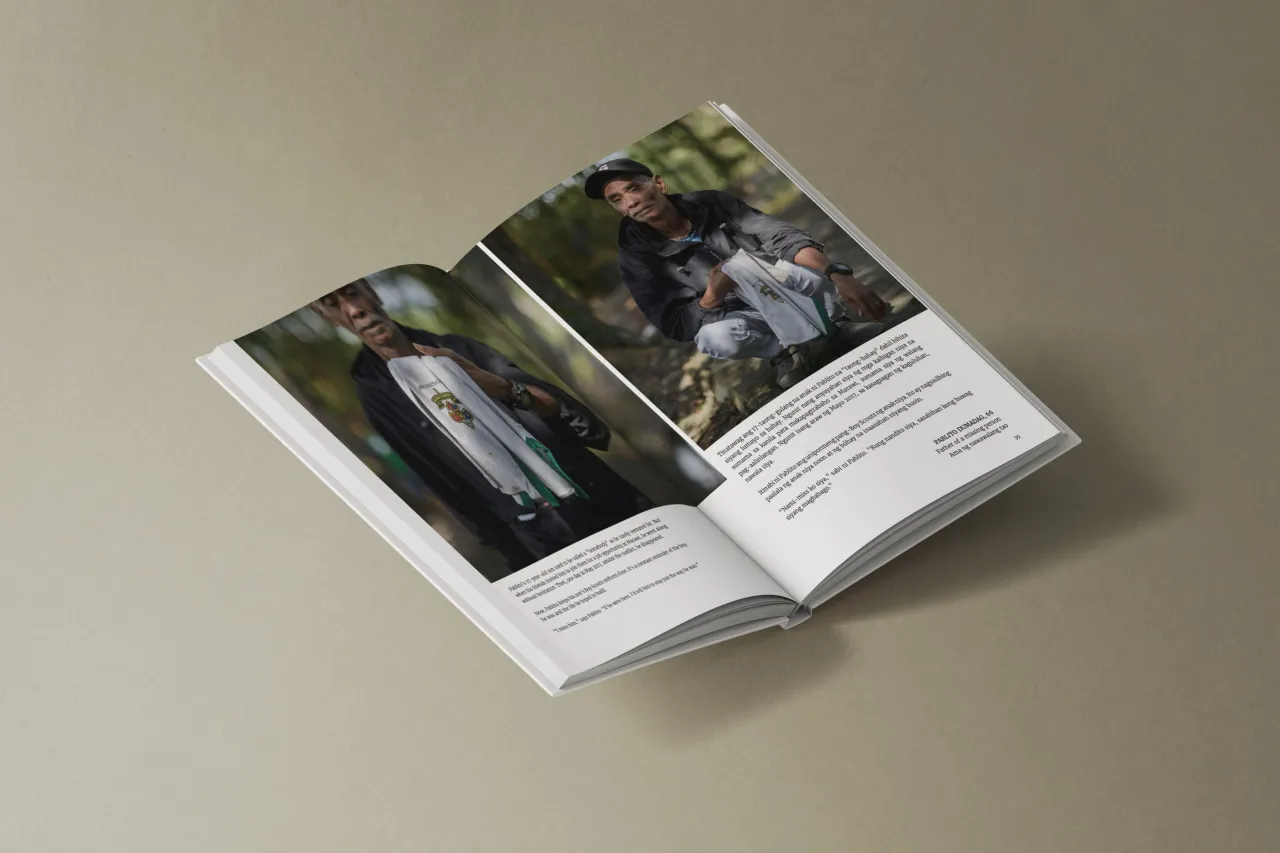
A glimpse into The Book of Memories
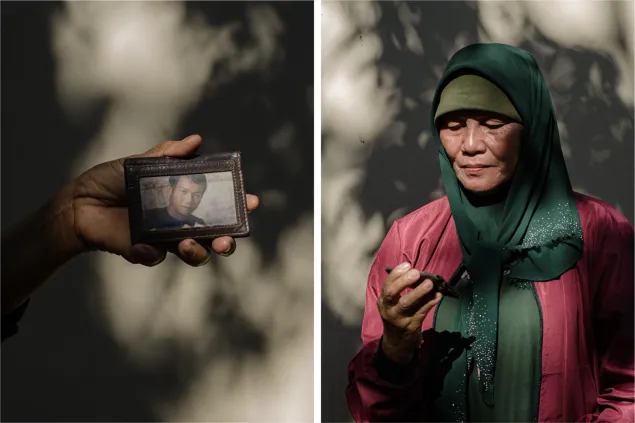
Glora Berden, 70, mother of a missing person
Since finding her missing son's wallet, Gloria has never let it out of her sight. “Every time I see it, I cry. He’s always in my heart, and seeing this wallet brings all the worries back. I feel such sorrow for my child,” she says.
“Eight years since losing their loved ones, the families have remained resilient in the face of many challenges. This book is a testament of their perseverance in their quest in wanting to know what happened to their missing loved ones. Through the book and the exhibit, the families and the ICRC wish to call on the authorities to fulfill their responsibility of clarifying the fate of the missing,” said Johannes Bruwer, head of delegation of the ICRC in the Philippines.
We hope that the government could help all families of the missing, whether financially or through other means. There are so many of their children who cannot go to school. And the government should help all families, whether they are Muslims or Christians.
Persistent challenges faced by the families
Prior to the book and exhibit launch, two representatives of the families of the missing expressed the challenges they continue to face in the search for their loved ones. They shared that they continue to face hurdles in getting legal documents which would allow them to access social benefits, pensions, property rights, or allow them to remarry. They also asked the authorities to reconsider the rejection of some compensation claims; and urged them to finally release information to the families concerned about the positive identifications that have been made.
“We hope that the government could help all families of the missing, whether financially or through other means. There are so many of their children who cannot go to school. And the government should help all families, whether they are Muslims or Christians,” said Litisia Palahang, who has been searching for her son.
The authorities shared updates such as the Lanao del Sur provincial government’s creation of a technical working group on the identification, exhumation and documentation of human remains in the Maqbara cemetery; as well as information on other support. They said they have not abandoned the families of the missing, despite the challenges that they encounter with the identification process.
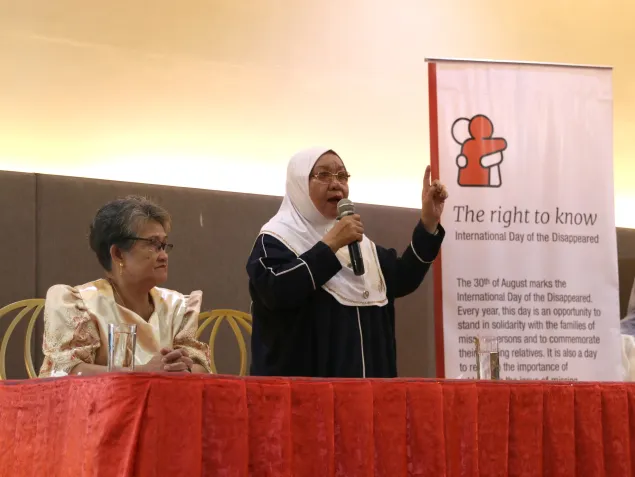
Dialogue between families of the missing and the authorities
Litisia Palahang and Faisah Dimaampao, families of the missing, raise their concerns around the search for their loved ones
Nevertheless, answers on the fate and whereabouts of the Marawi missing have yet to be provided by the authorities. Knowing what happened to their loved ones is both a need and a right that allows families to find closure and end the cycle of uncertainty.
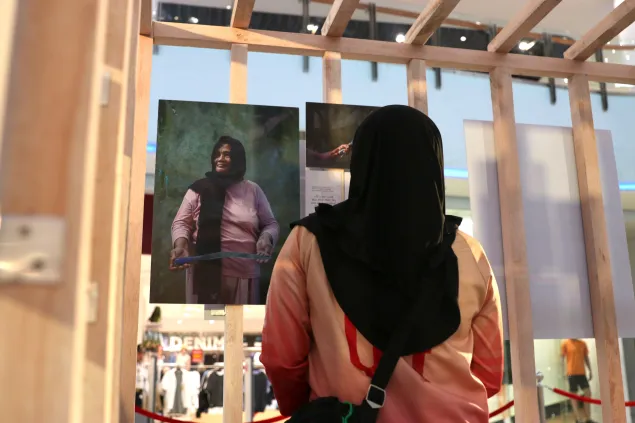
The Book of Memories photo exhibit
A relative of a missing person viewing the exhibit
The ICRC has registered over 300 cases of people who went missing from the 2017 Marawi conflict. The obligation to prevent people from going missing and to account for those who are reported missing is enshrined in the Geneva Conventions and its Additional Protocols, to which the Philippines is a party. This includes the dignified management of the dead and the identification of those who remain unidentified.
From 2017 to 2024, the ICRC has helped more than 400 families of missing people by providing mental health and psychosocial support and through livelihood initiatives. The ICRC has been providing the Philippine National Police-Forensic Group with technical advice, capacity-building and material support to support the identification of remains in the Maqbara and Dalipuga cemeteries.
About us
The International Committee of the Red Cross (ICRC) is a neutral, impartial and independent organization with an exclusively humanitarian mandate that stems from the Geneva Conventions of 1949. It helps people around the world affected by armed conflict and other violence, doing everything it can to protect their lives and dignity and to relieve their suffering, often alongside its Red Cross and Red Crescent partners.
For more information, please contact:
Rachel Malaguit, ICRC Manila, tel: 0928-5047648, email rmalaguit@icrc.org
Baipulo Sultan, ICRC Cotabato, tel: 0929-2402683, email bsultan@icrc.org
or visit our website: www.icrc.org
To preview and download the latest ICRC video footage in broadcast quality, go to www.icrcvideonewsroom.org
Follow the ICRC on Facebook and X

